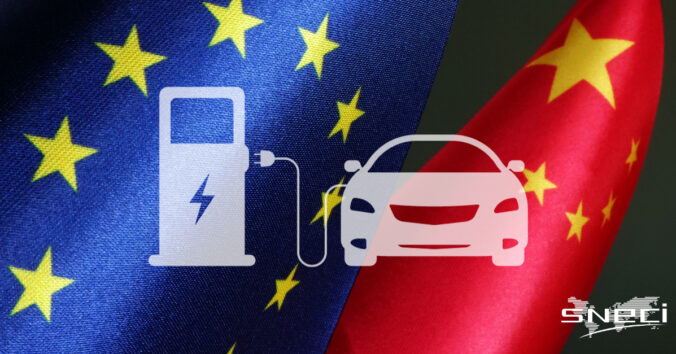Chinese electric car: a threat to the European auto sector?

China, a world leader in the electric car market
To begin, in China, car sales of Chinese brands increased by seven points in one year, according to LMC Automotive cabinet. In the first half of 2023, they represent the majority compared to foreign brands. However, after having dominated the Chinese automobile market for a long time, foreign brands are losing momentum, their influence having inexorably diminished over the last five years. This trend is occurring due to the rise of electric vehicles. Chinese electric cars now represent 22.7% of license plates in China, compared to only 15% in Europe, according to the CAAM. Chinese manufacturers are better positioned in this segment than their European, Japanese, or American rivals.
Mocked for a long time for its lack of originality compared to Western models, the Chinese automobile is now an unavoidable force on the global market. At this point, Chinese brands are in a strong position in terms of production costs and battery technology for electric vehicles.
Numerous factors are responsible for this dominance, including massive investments in battery technology R&D, strong demand from China’s domestic market, and government subsidies provided to Chinese automakers.
The rise of Chinese brands is also visible in Europe. In 2022, sales of Chinese electric cars in Europe represented 11% of the market, compared to 7.5% in 2021. This growth of 3.5 points is due to the drop in prices of Chinese electric cars. These are now more competitive than European electric cars and therefore more attractive to consumers. However, this is a real source of concern for European car manufacturers who also fear that Chinese public subsidies will give them an unfair competitive advantage.
The European investigation into Chinese government subsidies
On September 13, 2023, the European Union opened an investigation into Chinese government subsidies for electric cars. The EU investigation will take place in two phases. In the first one, during six months, the European Commission will review available data and collect information from relevant parties. In the second phase, for three months, the EU Commission will issue an opinion on the compatibility of Chinese subsidies with WTO (World Trade Organization) rules.
If the investigation concludes that these subsidies are illegal, the European Union could impose compensatory measures such as an increase in customs duties on Chinese electric cars.
For its part, the Chinese government reacted vehemently to this investigation and described this initiative as protectionism from the European Union. Beijing says these subsidies are the result of significant investments in the sector and should not be called into question.
In Europe too, opinions are mixed on the question of customs duties. For instance, German car manufacturers are more reluctant because they fear reactions from China. Indeed, German manufacturers make a significant part of their sales in China. French manufacturers, for their part, have little presence in this market. Thus, France has less to lose than Germany from an increase in customs duties.
A challenge for the European automobile industry
Furthermore, if Chinese electric cars become too expensive for European consumers, Chinese manufacturers will probably have to find other solutions. They may be forced to build factories in Europe to reduce costs. This would lead to increased competition in the market.
Beyond the question of public subsidies, the rise of Chinese electric cars also raises the question of competitiveness in the European automobile industry.
To get back into the competition, large Western groups have had to negotiate partnerships with their Chinese competitors. The Chinese are now in a position of strength. They have the required technologies and resources to compete with foreign manufacturers. However, they are not ready to share them cheaply. On the other hand, European manufacturers should also share their technologies, which represents a risk to their long-term competitiveness.
In conclusion, European automobile manufacturers must adapt to Chinese competition and will undoubtedly have to review their strategies, by investing in the research and development of innovative technologies in the field of batteries, electric motors, power systems, and autonomous driving, to remain competitive.
SNECI and its dual expertise
SNECI has been specialized in commercial development and improving industrial performance for more than 70 years. Our firm supports start-ups, SMEs, and large groups through different solutions.
In industrial performance, we give our clients the means to achieve operational excellence. SNECI supports them in their industrial projects or by training and coaching their teams. We also have in-depth expertise in evaluating industrial companies and implementing best practices in quality, purchasing, or logistics.
In business development, our team partners with suppliers who are expanding into new regions or looking to acquire new customers. We act as an extension of their sales, project, quality, and logistics team. We also advise companies on their partnership and acquisition strategy.
Would you like SNECI, with 70 years of experience and 450 experts around the world, to support you? Contact us by email at info@sneci.com or directly via the contact tab of our website.





